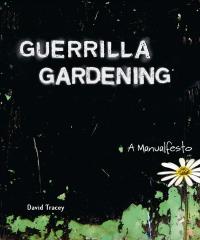Oh, the holidays. A time of eggnog, work parties, family gatherings, freezing rain, overt racism thinly veiled as nostalgia … and overconsumption: of food, booze, packaging and stuff. This year, we at the rabble book lounge have put together a list of holiday gifts that help you (and your giftees!) address, mitigate or take control over how and what you consume. That being said, we are aware that acquiring these books requires some measure of consumption, but! Many of the titles below are printed on recycled paper, can be purchased at independent or used bookstores or are available as e-books. So grab some newspaper, twine and potato stamps and get wrapping.
Books that help you consume less … or not at all
Linh Truong is the owner of Vancouver’s eco-bulk home and body care shop The Soap Dispensary. She recommends two books on how to be less wasteful. Plastic Free (Skyhorse, 2012), by My Plastic Free Life blogger Beth Terry, is a step-by-step guide to cutting plastic out of your life (and the book itself is made without plastic materials). Zero Waste Home by Bea Johnson (Scribner, 2013) focuses on home waste reduction of all kinds and is printed on recycled paper.
Ordering a book about reducing waste from a website that produces a mind-blowing amount of it would sort of defeat the purpose … so avoid gift-ordering these books on Amazon. Both titles are available at the Soap Dispensary in Vancouver, and Plastic Free is available on buygreen.com (which ships without plastic to Canada and the United States) or as an e-book.
DIY books
For your überhealthy friend who has yet to realize the wonders of kimchi, check out Sandor Katz’s The Art of Fermentation (Chelsea Green 2012), which covers the ins and outs of fermenting pretty much anything, from vegetables to beans to dairy. Katz is a firm believer in the health benefits of fermentation — he has been living with HIV since the 1980s and believes that fermented foods have helped him avoid many of the side effects that come with antiretroviral drugs.
For the makeup-obsessed relative whose Christmas you want to ruin, try There’s Lead in Your Lipstick by Gillian Deacon (Penguin, 2011, recycled paper), which details the toxic ingredients found in most body care products and provides recipes for natural, safe alternatives, including homemade (and surprisingly effective!) deodorant, toothpaste and body lotion.
And for those on your list who prefer more, ahem, mind-altering forms of fermentation, rabble’s own Michael Stewart recommends The Complete Joy of Homebrewing by Charles Papazian (HarperResource 2003). If you are in search of a gift for your neighbour who grows too many zucchinis every summer and tries to offload them by leaving them on your doorstep (it happens), check out the adorably named We Sure Can by Sarah B. Hood (Arsenal Pulp, 2011), which provides instructions and safety tips for canning as well as seasonally divided recipes. Both The Complete Joy of Homebrewing and We Sure Can are available in e-book format.
Homesteading
If there is anyone on your list who has been flirting with the prospect of self-sufficiency, check out any one of these homesteading books recommended by Rick Havlak, founder of Vancouver’s Homesteader’s Emporium. The Backyard Homestead, edited by Carleen Madigan (Storey, 2009), is a complete guide to living self-sufficiently off whatever little plot of land you may call your own, and John Seymour’s The Concise Guide to Self Sufficiency (Dorling Kindersley, 2007) is a classic homesteading volume written by an originator of the self-sufficiency movement.
For the gastronomically inclined homesteader, Havlak recommends Peter Reinhart’s The Bread Baker’s Apprentice (Ten Speed, 2001) or 200 Easy Homemade Cheese Recipes by Debra Amrein-Boyes (Robert Rose 2009).
Making Actions
While all activism is by nature do-it-yourself, these books cover topics that combine DIY and political action. For the gardener with a rebellious bent, think about Guerilla Gardening: A Manuelfesto (New Society, 2007). Author David Tracey takes readers through the steps of becoming a guerrilla gardener, from selecting space, sourcing seeds and dealing with irate city officials (you can also learn more about guerilla gardening over at the activist toolkit).
Arsenal Pulp also has two volumes on craftivism, the “worldwide movement that operates at the intersection where craft and activism meet” (which you can also learn about over here). Craftivism by Betsy Greer will be published by Arsenal Pulp in Spring 2014 (so is perfect if you feel like giving an IOU holiday gift!), but in the meantime, Greer’s Knitting for Good! (Roost, 2008) describes how needles and yarn can facilitate global change, and Yarn Bombing: The Art of Crochet and Knit Graffiti (Arsenal Pulp, 2009) contains 20 guerilla knitting patterns and tips on how to stealthily orchestrate a large-scale textile project.



